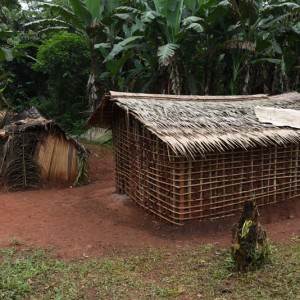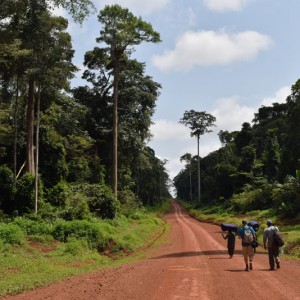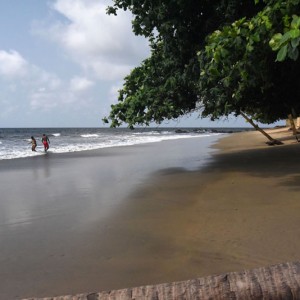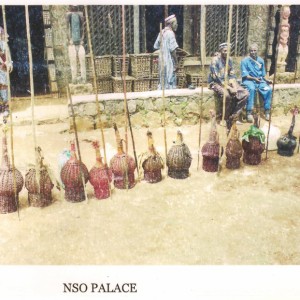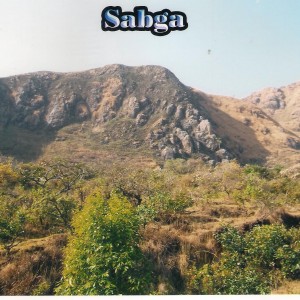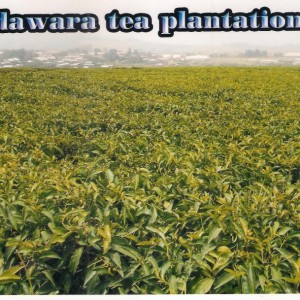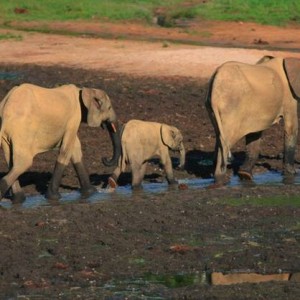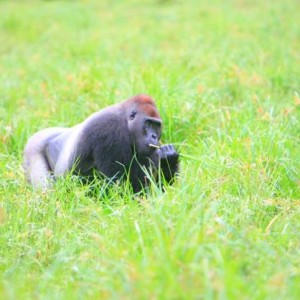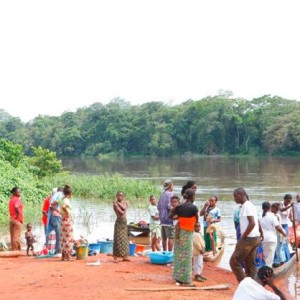Cultural Tour of Cameroon
Cultural Tour of Cameroon 9 days / 8 nights
- Day 1 - Yaoundé - Maroua
Arrival at Maroua Salak Airport and welcome by our local guide and driver, followed by transfer for check-in at Hotel Porte Mayo.
In the afternoon, visit the traditional animal hides tanning neighborhoods, visit blacksmiths at work making objects for use during field work, visit the Sao Kotoko peoples museum of Maroua, and the Maroua crafts center. Dinner and overnight at Hotel Porte Mayo. - Day 2 - Maroua - Oudjilla - Mora - Maroua - 150 km round trip .
After breakfast, departure to Oudjilla, a village perched on a mountain, headed by a Chief who has 52 wives and 112 children; visit the Traditional Chiefdom where the chief and his Podoko family live in huts constructed in the form of mazes. We shall have fun watching the 52 wives of the Chief of Oudjilla performing their traditional dance. Return to Maroua to visit Maroua Market. Dinner and overnight at Hotel Porte Mayo. - Day 3 - Maroua - Maga - Pouss - Mourla - Maroua - 200 km round trip Breakfast, followed by departure to Pouss Village where we shall meet the Mousgoum people, the Massa, and the Fulani people in a cosmopolitan market. We later head to Mourla to visit the shell huts - unique architecture, traditional habitat of the Mousgoum people, indigenous ethnic group. Boat ride on Lake Maga (using pirogue/dugged-out boat) to discover Fishing Villages (and its magnificent sunset), where we will be opportune to admire the fishermen at work, and a family of hippos. Return to Maroua where we shall have dinner and overnight at Hotel Porte Mayo.
- Day 4 - Maroua - Mokolo Market - Col Koza - Mokolo - Rhumsiki - 158 km .
After breakfast, drive to visit the local market in Mokolo, before heading to Col Koza, where we shall visit the traditional houses of the Mafa people, visit the craft centre at Djinglya. From Djinglya we head towards Rhumsiki, a brief stopover for photos of the lunar landscapes of Rafa. Guided tour of Rhumsiki with its extremely appealing landscape, a superb panoramic view, a visit to the Crab wizard - a féticheur or fortune-teller who predicts the future based on a crab’s manipulation of pieces of wood, visit the pottery, and watch the chila-chila cultural dance of Rhumsiki being performed. Dinner and overnight at Campement de Rhumsiki. - Day 5 - Rhumsiki - Tourou Market - Garoua - 370 km
After breakfast, we drive to Tourou market where the women of the Kirdi mountain village wear distinctive red wooden calabashes on their heads, which indicate their marital status. From Tourou we continue to Garoua, on the way we will visit rock carvings over 1000 years of age, also visit Cola Gorges in Guider. Return to Garoua where we will spend the night at Hotel Benoue. - Day 6 - Garoua - Poli - Fygnolé - Faro - Wangai Alantika - 245 km.
After breakfast, we visit the Fali people next to Garoua. Fali people inhabit the rocky plateaus ringed by the northern-most peaks of the Adamawa mountains of northern Cameroon. "Fali" is from a Fulani (Peul) word meaning "perched" and describes the appearance of Fali family compounds on the sides of mountains.
From Fali, we drive to the beautiful Alantika mountain region, on the way we will visit the Doayos people, Namdji people (Namji)*, Rôniers Valley, a small part of the Faro national park - sometimes animals are spotted. * The Namji people have an ancient burial custom whereby when an elderly person dies, the body is left for about a week, then placed inside a cow hide to fester for a while. When it is ready they perform a burial ceremony and bury the body. The head is wrapped in cloth like a mummy and left above ground. The head is later removed by a special person during a special ceremony which then relocates to a site in the bush. A domestic animal such as a cow or a goat is sacrificed and the blood is poured over the head which has been placed in a ceramic pot and closed. About once a year, the pot is revisited, another animal sacrificed and blood added. Note: this could be their version of putting fresh flowers on a grave – respecting those who have passed on. Upon arrival at Wangai, we shall set up our tents for camping in the Chief's compound, where we shall have dinner and overnight (Camping in tents). - Day 7 - Wangai - Librou - trek up to 1,000 m Altitude
Breakfast will be prepared by the English-speaking guide and cook, we shall trek for 3 hours, while making photos of the beautiful Atlantika Mountains, and stopover at Saptou, where the landscape is very beautiful. The big attractions of visiting the Atlantika Mountains are meeting the Koma people and of course the mountain range itself which rises to about 2000 m. The Koma only inhabit this range which straddles the Cameroon – Nigerian border. They live in isolated communities on both sides of the border where they exist self-sufficiently. The Koma don’t have access to healthcare and their children don't attend school. Traditionally their women don’t wear clothes, just special tree leaves covering their private parts (which are renewed daily). They grow and hunt for all their food and have a broad knowledge of how to use the natural vegetation for medicines.
Upon arrival at Librou, we shall camp at the Koma Chief's Palace. In the evenning we shall visit the traditional houses of the Koma people, taste their food (if you wish) and experience their lifestyle.
After lunch and a good rest we shall leave Librou which is pretty much in the foothills and climb up the steep slopes to a higher, the more isolated Koma community called Bikeba. Here very few people wear modern clothes. They seem to live a very peaceful life and have a simple lifestyle with “penthouse suite” views. They live off fruits such as mangoes, plum, papaya, palm trees, grow millet, corn, chickens, cows, goats and hunt. They would regularly hunt small animals such as rabbits, bush rats, and gazelle.
From Bikeba, we shall descend back to Librou where we will later join the traditional dance of the Koma at sunset. Dinner and overnight in tents at Librou. NB: Ms. Anneke will be assisted by a motor-cycle down to the foot of the mountain at Librou to avoid 3 hours of walking, but she will have to climb up the steep slopes for 1 hour to reach the more isolated Koma community called Bikeba. - Day 8 - Librou - Wangai - Poli - 94 km
Breakfast, trekking back to Wangai (approximately 3 hours, sometimes less), where we will pickup our car and continue to Poli. Dinner and overnight at Auberge de Mocto (basic but clean motel/inn). - Day 9 - Poli - N'Gaoundéré - 211 km
After breakfast, drive to the plateau region of Adamawa, N'Gaoundéré. Upon arrival, transfer to Transcam Hotel; city tour, visit historic Lamidat, have a rest and later catch the night train (sleeper wagon 2 beds in your room, dinner and overnight on the train)
Day 10 Yaoundé -Mefou Park for Primate Gorilla’s and Chimpanzee
back to Yaoundé. Relax , Yaoundé city tour and Back Back to Europe from Yaoundé or extension at Kribi Beach .
Personal travel gear:
- trekking shoes
- rain-coat
- small sheets for Camping
- a small towel
- a water bottle
Hotels:
- Maroua = Hotel Porte Mayo
- Rhumsiki = Campement de Rhumski
- Garoua = Benoue Hotel
- Wangai = Camping at Chief's Palace
- Librou = Camping at Chief's Palace
- Poli = Mocto Hostel
- N'Gaoundéré = Transcam Hotel
- Train = night train (sleeper wagon 2 beds in your room)
Package Includes:
- Transfer from the airport to lodging establishments and vice-versa
- Catering services (half board - breakfast & dinner; full board during trekking)
- Lodging in three-star indicated hotels (1 double bedroom - local standards)
- Land transport (4X4 Car, Fuel)
- Services of driver
- Toll gates
- Camping equipment (double tents)
- Services of the main guide (chef during trekking)
- Services of porters during trekking
- Entry fees (into sites)
- Local flight to Maroua
- Train tickets (N'Gaoundere - Yaoundé)
- Visits and activities planned
Package does not include:
- Passports
- Visas
- vaccines (malaria and yellow-fever vaccines recommended)
- charges and fees related to other formalities
- Travel insurance, repatriation and luggage charges (strongly advised!)
- Drinks, personal expenditure, individual meals, excursions and optional visits
- Airport taxes
- Taxes on cameras on sites visited
- Additional singles
- Extras
- Tips to guides, drivers or locals
Best time: November , December , January ,February -March -April - Mai , June , July , August ,September and October















